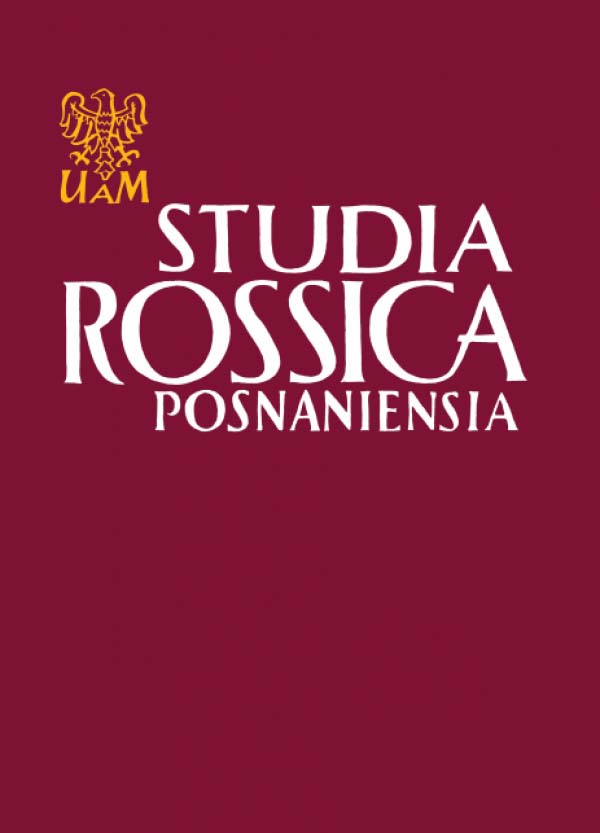ROLA I ZAKRES GRAMATYKI W NAUCZANIU JĘZYKA ROSYJSKIEGO
THE ROLE AND SCOPE OF GRAMMAR IN TEACHING THE RUSSIAN LANGUAGE
Author(s): Tomasz WójcikSubject(s): Language studies, Language and Literature Studies, Foreign languages learning, Philology
Published by: Uniwersytet Adama Mickiewicza
Summary/Abstract: The article discusses the role and scope of grammar in teaching Russian to Poles. The term “grammar” has a double meaning, it may stand for the grammatical structure of the language and is then a synonym of the term “structure” . In the second meaning by grammar we understand the description of a language, or more strictly — of the grammatical structure of the language. The teaching of Russian to Polish learners is at times reduced to doing grammar and then it consists in teaching about the language rather than drilling language skills. As knowledge about the language grammar does not help to master the language, on the contrary — it strengthens the influence of the native language in the process of teaching a foreign language for it does not eliminate the phenomenon of interference at all. Mastering grammar as knowledge about a language does not guarantee the mastering of language skills, i.e. the skill of “operating” the language material. The school syllabus considers the foundations of grammar essential in the process of learning the Russian language. The author believes, however, that the scope of grammatical material taught should be restricted to problems concerning the differences between the systems of the Polish language and the Russian language on all the levels of language structure. Disregarding these differences inevitably results in the learners making mistakes under the influence of the Polish substrate. Many mistakes result from the fact that the teaching of Russian does not include systemic properties of words, such as rection of case, rection of case and preposition, word order in a sentence, ways of joining components, distribution of parts of speech. None of the textbooks of descriptive grammar discuss these problems for descripitve grammar analyses only the grammatical functions which are expressed by formal exponents of grammatical categories, not the ones which appear only in syntactic relations with other words. This is why descriptive grammar (school grammar, not functional descriptive grammar) is of little use in the teaching of Russian; it deals with the structure of one language only. As has been said, the term “grammar” may be synonymous with structure of the language and then it is essential that it be mastered. Language structure has a number of levels. On each level function homogenic units: phonemes, morphemes, words, syntactic groups, sentences. The structural units form a hierarchy — from the most concrete (if by aphoneme we understand a sound, not the sum of distinctive features alone) to the most abstract (if by a sentence we mean a syntactic abstract model of an utterance, not a concrete utterance). The same hierarchy is formed by language habits. All the skills are subordinated to the main ones — speaking and understanding. The author believes that in the process of teaching a foreign language the starting point should be the smallest communicative unit which is a sentence. As far as the skills are concerned, the most important ones have to come first since the others are developed indirectly, the reverse is not possible. To this day the teaching of Russian in Polish schools is based on what is called teaching of a language as a subject. It has not been programmed yet. When it has been possible to programme the teaching of foreign languages the teaching of grammar will be synonymous with the teaching of the structure of the given language.
Journal: Studia Rossica Posnaniensia
- Issue Year: 1/1970
- Issue No: 1
- Page Range: 183-203
- Page Count: 21
- Language: Polish

